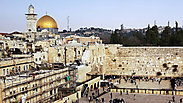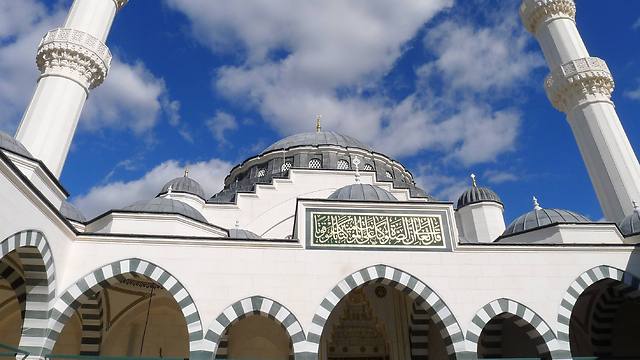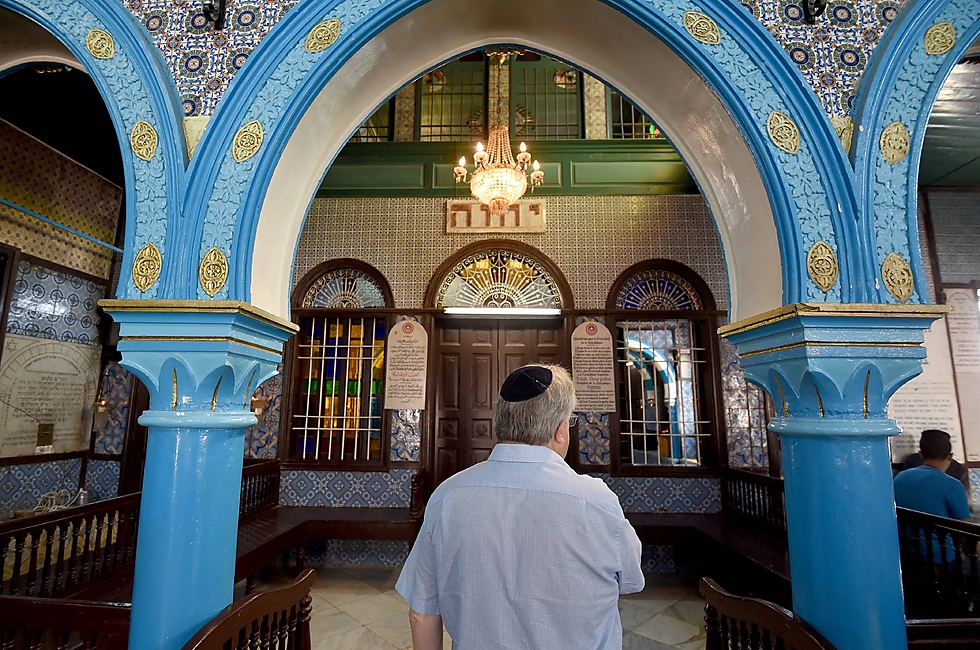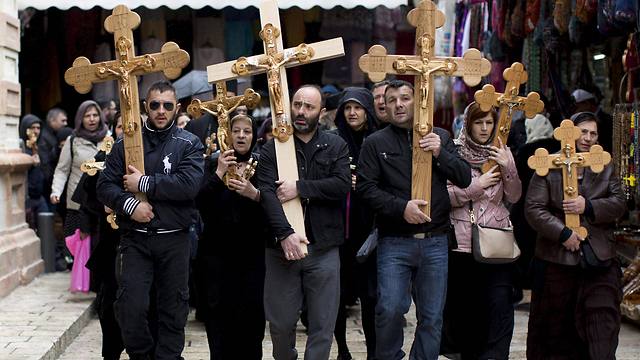
Jews, Muslims and Christians to build a joint house of worship in Jerusalem
In an attempt to turn away from polarization and politics, a group of Jews, Muslims, and Christians will be setting up a joint house of worship in Jerusalem. The prayer hall will be open to the public between September 5th to the 11th.
In theory,it shouldn't be a big deal; men and women of faith, who share a belief in one God and a love for the city of Jerusalem, coming together to pray, study and sing. In practice, it is about as plausible as a snowball’s chance in the desert.
But, for one week in September, a small structure of four walls and a bit of balcony, called the Alpert Youth Music Center, will become AMEN, a home for something that has never before been attempted in the Holy City—a place of worship for the three great monotheistic religions “who share a passion for Jerusalem in which they will co-exist temporarily under the wings of the Almighty.”
Under the radar, away from the public eye, a small clutch of religious leaders have been gathering for years to believe, to hope and to reconnect via the atavistic language of faith.
The experiment, of which the public will see merely the tip of the iceberg in the weeklong joint house of worship, is no less a turning inwards towards an ancestral form of communion than it is an explicit turning away from the polarization and vulgarity of contemporary political discourse.
Tamar Elad-Appelbaum, the rabba (feminine form of rabbi) and founder of the Zion synagogue community in Jerusalem, told The Media Line “This sort of thing is very natural for an entire sector of the public. You pray together. It goes back to the most ancient ways people here in this city prayed, and prayed communally, so communicated. Today we live in categories that, frankly, we could do without.
“When you move beyond certain empty, but limiting, borders in which we are by and large constrained today, you find a yearning for a shared experience that our forefathers invented, that is in no way separate from the distinct heritage each of us carries. There is nothing new age about this. We are not creating anything new. It is very important that it be clear: It is the real Jewish tradition in which others were invited and we were invited; and in our joint work we are very strict about hosting and visiting.”
The concept they have created, which the believing public is invited to join between September 5 to 11, is part of a festival known as Mekudeshet ('Blessed'), which is part of Jerusalem’s Season of Culture.
“The reality is based on Isaiah’s prophecy, ‘My house will be called a house of prayer for all the nations.’” It is, the festival organizers say, “an old-new reality that draws its inspiration from the ancient traditions of meeting and cooperation. A reality that turns what is holy for you and me from separate rooms into one open temple that is filled with shared and sacred inspiration and faith.”
Said simply, the organizers’ ambition, strategy and hope is that, in fact, religion is the key to a lasting life in the region, and not the source of the strife.
“I think many of us who grew up in a very wide spectrum of traditional worlds grew into the Torah concept of "darchei noam" (pleasant ways). Political dialogue has alienated many of these publics that are deeply steeped in traditions, many people who come from Jewish education intuitively find themselves in this place in which the language of invocation is the language of communication between people, because society and politics now speak only in a very polarized way. Nothing else is given expression.”
“I was quite astonished,” said Elad Appelbaum, “to find how naturally a very wide range of people were drawn to return to a simple, natural, primal place of fellowship and pleasant ways. As the years passed, I've seen there are hundreds of people who, with proper leadership, can create something entirely new.
Sheikh Ihab Balha, of the Sufi Muslim community in Jaffa, who also teaches and studies at the Islamic College in Baqa al-Gharbiyye, in the lower Galilee, told The Media Line that the leaders of this movement, revolutionary as it is, “did not have difficulty connecting to create this idea, most of us have a great spiritual aspect and an awareness that when you cling to many things like land (it pulls us apart). On the contrary, we cling in to the love of God. So it was not at all difficult to bring us together.”
Yair Harel, the cantor, composer and liturgical leader at the Zion community, who works with Elad Appelbaum, told The Media Line “my role is to find how the religious connection also has an artistic and musical dimension, how the encounter that we live can be opened up to the public as well, to a public that does not live in its daily life with the intensity that we do, but a way that remains organic and holds a space that belongs to any sort of religious people, not just believers.”
“We are a group for whom the pure desire was to create a group for whom this is the daily practice of life, it is our way of encountering ourselves, thought we do not necessarily do it all day. But prayer does not only occur in the world of knowledge or tradition; we listen very much to the learning that has accumulated among us and try to peel back what the differences are without falling back onto a lower common denominator or have anyone of us feel that our work is inauthentic. We are coming from a deeper root, a deep human language. We believe in the power of prayer to influence what is taking place,” concluded Harel.
Article written by Noga Tarnopolsky
Reprinted with permission from The Media Line













